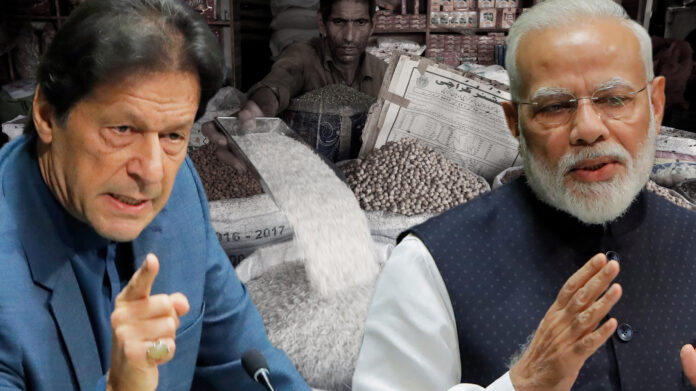Pakistan has short-listed two Brussels-based international law firms, Messrs Altius and Messrs Liedekerke Wolters Waelbroeck Kirkpatrick to fight the country’s Basmati Geographical Indication (GI) tag case in the European Union whereas Prime Minister (PM) Imran Khan is expected to announce the finalised option’s name soon.
The government had decided to oppose India’s application demanding exclusive rights of claiming a GI tag to Basmati rice in the EU on September 22 whereas India had applied for the tag under Article 50(2)(a) of Regulation (EU) No 1151/2012 of the European Parliament and of the Council on quality schemes for agricultural products and foodstuffs, mentioned in the EU official journal dated September 11, 2010.
The protection of geographical indications is aimed at boosting exports, helping support rural development in the country, and enhancing the livelihood of agriculture producers and skilled craftsmen.
The marketing of GI products also enhances secondary economic activities and boost regional economic development in various regions boosting economic development. GI law protects local products such as the Peshawari chappals, Multani blue pottery, Hunza apricots, Hala ajrak, Kasuri methi, Chaman grapes, Turbat dates etc.
Currently, India and Pakistan have 65 and 35 per cent shares of Basmati in the world rice trade, respectively. Basmati rice fetches Pakistan around $800 million to $1 billion annually.
It may be mentioned here Pakistan, after a delay of almost 18 years, had enacted Geographical Indications (Registration and Protection) Act in March this year.
As per the Indian application, basmati is special long grain aromatic rice grown and produced in a particular geographical region of the Indian sub-continent. In India, this region is a part of northern India, below the foothills of the Himalayas forming part of the Indo-Gangetic Plains (IGP).
Further, India has claimed that basmati is grown and produced in all districts of the states of Punjab, Haryana, Delhi, Himachal Pradesh, Uttarakhand, as well as in specific districts of western Uttar Pradesh and Jammu & Kashmir.
According to a report by Dawn, the relevant rules confer the right to oppose the Indian application pursuant to Article 51 of the Regulation (EU) No 1151/2012 by Dec10, 2020.
The notice of opposition should contain a declaration that the application might infringe the conditions laid down in the regulation after which the commission will forward the notice of opposition to the relevant authority or body without delay. If the notice of opposition is lodged with the commission and is followed within two months by a reasoned statement of opposition, the commission will check the admissibility of this reasoned statement of opposition.
Within two months after the receipt of a reasoned statement of opposition, the commission will invite the authority or person that lodged the opposition and the authority or body that lodged the application to engage in appropriate consultations for a reasonable period that will not exceed three months.
It may be mentioned here apart from opposing the GI tag in the EU, Pakistan must also consult international dictionaries to rectify the definition as the same rice is largely produced in the country.
Moreover, India is also registering Himalayan salt and Multani Matti with Indian names in the international market.



































